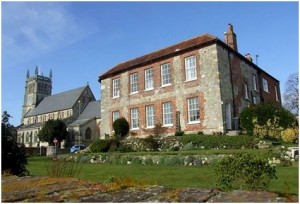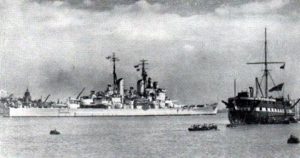Thank you to Den Budden for providing the information (2010)
http://www.gosport.info/History/Gosport-s_Home_Guard_History/gosport-s_home_guard_history.html
THE STORY OF THE 29th (GOSPORT) HOME GUARD BATTALION, HAMPSHIRE REGIMENT.
This booklet is being issued to every man who served in the 29th (Gosport) Home Guard Battalion, Hampshire Regt., as a reminder of the times, both good and bad, in which we served.
It has only been possible to treat the subject generally, since to write a fully detailed history of every incident would take many volumes. Similarly, mention of names has been kept to a minimum, since to write of any one man who helped to build the Battalion, would mean writing hundreds.
Since I have had the honour of Commanding the Battalion, I have realised many times that words are poor things. I am going to content myself by saying to all who have passed through the Unit, “Thank you for all you have done.”
I want to express my appreciation of Captain R.R. Robinson, R.A. Adjutant, and the Staff at Battalion H.Q, to Lieut L.J. Collings, Press Officer, and to Lieut.-Col. J.H. Constable, R.A., who have helped compile the book.
H.T. ROGERS, Lt.-Col. BURY HALL, GOSPORT. 1st November 1944.
It must be appreciated that the Home Guard was an essential element of contemporary strategy, and tactics, and of as great a significance in modern warfare, as the R.A.F. and the Tank Corps. In May, 1940, the war situation was bad. We were still thinking in terms of trenches and pill-boxes, and of lines of defence; defence in depth was considered sufficient up to 40 miles. Paratroops, deep penetrations of Airborne Units, and the use of fifth column put an end to all of that, and defence in depth had to be quickly organised over all Britain. Every town, and every village was in the front line and had to be occupied by troops ready and alert. New armies had to be built up to regain all we had lost. How could this be done and war production continue. It meant that the services would swallow up every fit man. The call that Mr. Eden made, was for every producer to be a part-time soldier, working at his civil occupation with his arms readily available. The answer that the Country gave was the L.D.V., later the Home Guard.
Outstanding in the history of the Gosport Home Guard is the fact that it can fairly claim to have built itself into a Battalion. When authority was given to form the Local Defence Volunteers, Gosport was expected to raise one section of twenty-five men. To those whose who knew the Borough with its Service traditions such an idea was ludicrous, as was proved by the hundreds of men who flocked to the Police Station to enrol. The original authority is still in existence with the word ‘section’ crossed out and ‘Platoon’ inserted. A Platoon, however, was no good to the men of Gosport and the organisation of the 14th (Fareham) Home Guard Battalion, Hampshire Regiment, the ‘Platoon’ which, even after much pruning was still some 450 strong, became ‘C’ (Gosport) Coy. Of the 14th.
As a Company it was one of the few to double its strength under the old voluntary system, and the Local Military Commander, who was responsible for its operational role, called for re-organisation on the basis of an acting battalion. With the introduction of conscription, recognition could no longer be withheld, and on September 1st, 1942, the ‘Section’ became the 29th (Gosport) Home Guard Battalion, Hampshire Regiment, with a ceiling strength of 1,250 men.
Owing to their location in Gosport, the men of the 29th Battalion were destined to see more service than the majority of Home Guards in Britain. For over four and a half years some hundreds of men were on night duty each week. On Guards, Look-outs, and Inlaying Picquets, or Beach Patrols. They saw at first hand, the ebb and flow of invasion in both directions. In 1940, when the church bells rang, they stood-to for many hours; an experience that was to repeated many times in after months. They saw the return of the Canadians from Dieppe, they helped to build and/or guard many of the weird ‘mysterious’ craft, used in the great armada of 1944, and finally, they were privileged to take part, as an operational unit, in the greatest military operation of all time.
From the beaches the Battalion had patrolled for many weary months, the initial assault troops set out on D-Day, and the 29th were charged with the honour of defending the most vital bridgehead in England. During the next few weeks, by far the greater proportion of troops landed in Normandy, left from the 29th Battalion Area, and the Battalion had a proud task of safeguarding the last stages of the route over which the invasion Forces travelled. It was a grand and glorious time. The 29th, unable to go overseas themselves (two members did try, as stowaways0, did not forget that the Regular Troops were spending their last nights in England in the Battalion Area, and they gave them such hospitality as sent them away with their ‘tails up.’ The letters that were received later from the many units all showed their appreciation.
Finally came the reward, when the first Germans arrived on the beaches in thousands – as prisoners. We have seen by our attacks on the ports of Le Havre and Calais, the lot that might have been ours. Is it too much to say that these ports fell because there were no Home Guard to assist in their defence. The Home Guard of France was assisting the attacker. During the long years from the inception of the L.D.V., until D-Day, on top of all routine duties, training had to be carried on as usual, and many men had their first lessons in weapon training in very unpleasant, and, at times, exciting circumstances.
Several hundreds of men passed through the Battalion to the Regular Forces, and when it is re-called that during this time there were over 1,500 ‘Alerts,’ when the men stood-to, and some 10,000 homes damaged in the Area, it will be appreciated what a strain was placed on those responsible for instruction. During the ‘blitz’ year the limit of 48 hours a month was forgotten and the rank and file lived their spare time at their Company H.Q’s., since enemy aircraft were continually overhead, even when the immediate area was not being bombed.
The 29th can look back with pride to the fact that their co-operation with their comrades in the Civil Defence services was complete, and that the assistance agreed upon in 1940, was adopted as the official policy in 1944. The members of the Battalion had made up their minds years before, that it was their duty to defend their homes from any kind of attack, whether from paratroops or bombs. Such a record was not achieved without sacrifice or casualties, some of which, unfortunately, were fatal. Fancy soldering was impossible. The Battalion was a hard-working, front-line, operational unit with a job of work to do, and it got on with it, although it meant that even during ‘normal’ the average man was on full night duty every sixth night, and the Officers and N.C.O’s. a good deal more. In 1943, when the Home Guard became responsible for the defence of the Country, Battalion H.Q. became Defence H.Q. for the Area, and had to issue orders to Regular Units and operate 24 hours a day. It placed a great responsibility on the Home Guard Duty Officers and the attached Regular Officers and N.C.O’s., but it as an experience that will never be forgotten or regretted. It will be better to let a member of another Battalion do summing up.
“The 29th were not able to win distinction in any one branch,” he said, “but they won something better – they gained a reputation of being an extremely able, tough, and efficient crowd, who could always be relied upon to have a crack at anything. They were a mixed lot; duke or dustman came all the same to them, but what always struck the visitor was the atmosphere of a ‘Happy Ship.’ It was obvious that they were more than a collection of companies. With them only one thing mattered – The battalion. “Good Luck to them all. They were all busy men in their civil jobs, but did a grand job of work for the Home Guard. Had I not been a member of my own Battalion there was only one I would wished to transfer to –the 29th (Gosport) Home Guard Battalion, Hampshire Regiment.”


